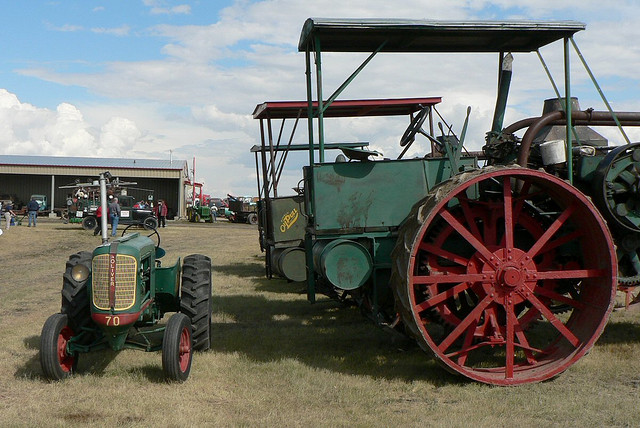rabble is expanding our Parliamentary Bureau and we need your help! Support us on Patreon today!
2015 was a deadly year for children on Alberta farms. The high-profile deaths of three sisters in a farming accident brought attention to Alberta’s lax farm regulations and triggered the government to finally bring health and safety legislation to Alberta’s agricultural industry.
The legislation, passed on December 10 ends Alberta’s outlier status among Canadian provinces and brings basic protections to farm workers. For the first time ever, farm workers will be able to access Workers’ Compensation and have Occupational Health and Safety standards apply to them. This includes the right to refuse unsafe work. Inspectors can finally access farms to investigate workers’ injuries or deaths.
These protections came into force on January 1.
There are more than 60,000 farm workers in Alberta and nearly 800 corporate farms. There is an average of 18 deaths per year on Alberta’s farms and for every death, the Government of Alberta says that 25 workers are seriously injured.
The new legislation will also allow some kinds of agricultural workers to unionize.
Opposition to the legislation has been fierce. Farmers have staged protests and the Edmonton Journal reported that the right-wing Wild Rose Party filibustered to delay the legislation from being passed. Many farmers argued that new worker safety legislation should not extend to family farms.
Lori Sigurdson, Minister of Jobs, Skills, Training and Labour had to issue a statement to assure farmers that family farms would remain exempt from the legislation, along with amended language: “The amendments explicitly exclude owners of farming or ranching operations, and their family members, from the mandatory application of WCB and OHS rules.”
Alberta’s new farm legislation represents a departure from the past four decades of Tory rule that has allowed the province to fall out of sync with not just Canadian standards, but international standards as well.
Bill 6 brings Alberta closer to International Labour Organization standards. The ILO convention Safety and Health in Agriculture (No. 184) says that workers should be granted the right to refuse unsafe work, a standard that is now law in Alberta. The convention has not been ratified by Canada, and has only been ratified by 16 ILO members, including Argentina, Finland, Ghana and most recently, Belgium.
The convention also says, “National laws and regulations shall prescribe that agricultural machinery and equipment shall: (b) be operated by trained and competent persons, in accordance with national law and practice.” Alberta’s new law does not meet this standard and, had such a regulation been in place, the death of a 10-year-old who was operating a forklift in November might have been avoided.
Child labour is most common within agriculture, according to the ILO. While Alberta’s new farm safety legislation wont regulate children who do regular chores on the family farm, it will bring basic protections to youth who are paid to do farm work.
Despite the improved safety legislation, Alberta still falls short of ILO conventions related to agricultural work. The ILO Minimum Age Convention No. 138, for example, says that hazardous work on a farm should not be done by anyone younger than 18. 161 member nations have ratified the convention, excluding Canada.
There are no minimum age regulations added by the new legislation, and child labour on farms will continue to be an issue for Albertans to address. And, while the legislation would not have prevented the deaths of the three sisters on their family farm earlier this year, it does finally bring some regulation to child work, especially considering that many children do paid work on Alberta farms.
Children and youth labour code restrictions that regulate minimum working ages do not apply to farming in Ontario, Alberta and Manitoba.
rabble is expanding our Parliamentary Bureau and we need your help! Support us on Patreon today!
Image: Flickr/James Tworow



